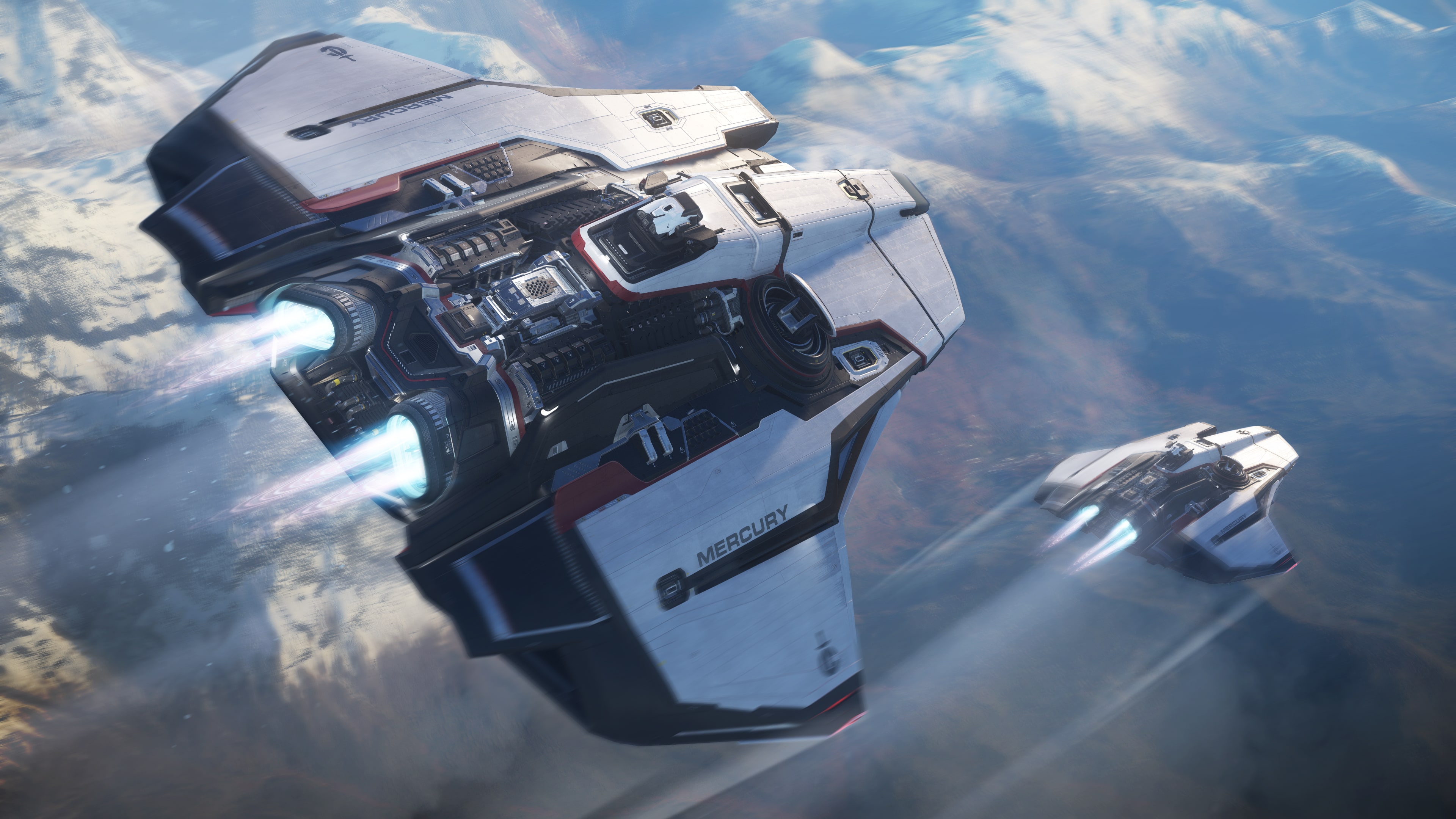Chris Roberts sallies forth to declare 'we are closer than ever to realizing a dream many have said is impossible' with Star Citizen, but I'm sure I've heard this record before
"Star Citizen and Squadron 42 are two games that would never have been greenlit by any of the big publishers."

It's been 12 years since the announcement of Star Citizen, the ludicrously ambitious and equally ludicrously overfunded space MMO from developer Cloud Imperium Games and designer Chris Roberts. For some of that time there was a legitimate question of whether there was any kind of game there at all, but that spectre has long been laid to rest and the thing is currently in an alpha for version 4.0: The question now is whether, after all this time and money, it'll be any good.
The New Year has brought forth a new "Letter from the Chairman" to Star Citizen's devotees, in which Chris Roberts hits a few familiar notes before introducing 2025's big theme for the game: Playability. Stop sniggering at the back. We'll get to the actual content that CIG hopes will make a difference soon, but as Roberts acknowledges performance and stability remain sizeable issues for the game:
"The sentiment many of you have shared—and one we wholeheartedly agree with—is that if the current game, as it stands today, ran smoothly with fewer obstacles and bugs, it would provide an unparalleled experience."
Roberts says they've tried various approaches over the years to improving things, but have struggled to balance this with introducing new features and technology to the game, and have on occasion ended up with "unintended ripple effects—creating instability, hindering performance, and impacting overall gameplay."
So the new approach is to hive-off feature development entirely from the ongoing work of content creation and general fixes. New features that require testing will get their own experimental and isolated channel and won't be integrated with the full game until "fully greenlit." Roberts claims, and this did rather raise an eyebrow, that the developer has in the past "frequently been held hostage by tech or feature work that has taken longer than anticipated."
Roberts then goes on a rather unconvincing rant about big publishers which, a dozen years after he made more money than Croesus from a game he hasn't delivered yet, feels a little bit off.
"Star Citizen and Squadron 42 are two games that would never have been greenlit by any of the big publishers," says Roberts. "They are both too ambitious, and in a genre that up until recently was viewed as niche. They require patience and investment that I doubt any publisher would have the stomach for. Yet here we are, thanks to all of you!"
The biggest gaming news, reviews and hardware deals
Keep up to date with the most important stories and the best deals, as picked by the PC Gamer team.
I'm fairly sure that publishers have in fact greenlit various space MMOs and FPSs, but whatever: People are so far in the hole on this one that I suppose it needs to feel special. But naysaying like that is exactly what this project thrives on. "Server Meshing is no longer a question mark, but a reality," says Roberts, "and seeing the results of a more densely populated universe, as well as better performance and stability—we are closer than ever to realizing a dream many have said is impossible."
Roberts is here referring to 4.0's new "server meshing" backend, which now sees players "navigating seamlessly through a mesh of servers that encompasses the entire game. Each planet, landing zone, or major station is now covered by different game servers. Thanks to this technology, server boundaries are effectively invisible, even at our high levels of fidelity, ensuring smooth, uninterrupted gameplay." Roberts lists further benefits such as crashes being localised to small regions, and improved performance thanks to each server simulating fewer entities. The main benefit to players is that each server can now handle 500 players at once, as opposed to 100.
This all comes alongside some substantial additions in 4.0, primarily the new Pyro star system, which is made up of six planets plus dozens of outposts and bases. But notably absent from Roberts' letter, beyond a fleeting reference to the roadmap, is Star Citizen 1.0: The full release of the game.
Roberts previously claimed server meshing was the last big technological hurdle and, once it was in place, the team was setting sail "for Star Citizen's own finish line… Star Citizen 1.0 is what we consider the features and content set to represent 'commercial' release. This means that the game is welcoming to new players, stable, and polished with enough gameplay and content to engage players continuously. In other words, it is no longer Alpha or Early Access."
Those words are from March 2024. Almost a year on, Star Citizen remains in alpha and early access. But I'm sure 1.0 is coming soon.

Rich is a games journalist with 15 years' experience, beginning his career on Edge magazine before working for a wide range of outlets, including Ars Technica, Eurogamer, GamesRadar+, Gamespot, the Guardian, IGN, the New Statesman, Polygon, and Vice. He was the editor of Kotaku UK, the UK arm of Kotaku, for three years before joining PC Gamer. He is the author of a Brief History of Video Games, a full history of the medium, which the Midwest Book Review described as "[a] must-read for serious minded game historians and curious video game connoisseurs alike."

